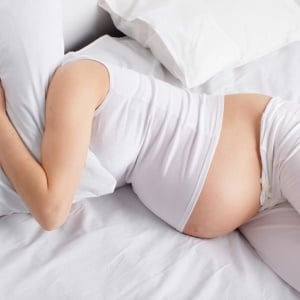
Today's young mothers-to-be may be more likely to develop depression while pregnant than their own mothers were, a new study suggests.
British researchers found that, compared with their mothers' generation, young women who became pregnant between 2012 and 2016 were at greater risk of having "high" scores when they were screened for depression.
The reasons are unknown, and more research is needed to understand the pattern, said lead researcher Rebecca Pearson, of the University of Bristol.
According to a 2012 SAMJ article, studies in South Africa indicate that more than a third of women have significant depressive symptoms during pregnancy.
Standard questionnaire
The findings, published online in JAMA Network Open, are based on two generations of UK women: almost 2 400 who gave birth between 1990 and 1992, and 180 of their daughters, who gave birth between 2012 and 2016.
All of the women were screened for depression symptoms during the second and third trimester, using the same standard questionnaire. Among the older generation, 17% had "high" depression scores; that compared with 25% in the younger generation.
After the researchers weighed several other factors – including the women's education levels and whether it was their first pregnancy – those in the younger generation were 77% more likely to have high depression scores.
It's not clear what's going on, Pearson said. But her team speculated on some explanations.
For one, there's evidence that depression has risen among young women, in general – so the pattern among young pregnant women mirrors that, the study authors said.
Plus, new mothers today are more likely to be working, compared to previous generations. It's possible that work pressure, or the strain of balancing work and home life, is at play, the researchers speculated.
Pearson made another point: Both generations of women were between the ages of 19 and 24 when they became pregnant. But today, the average age of motherhood is older than it was in the early 1990s, she said.
Different perceptions
So it's possible that these days, women who become pregnant at that age have a different experience than their mothers did. They may be more "socially isolated" or feel more pressure, for example, Pearson suggested.
A psychiatrist who was not involved in the study agreed.
"Being a young mother now may have a different meaning than it did for earlier generations," said Dr Elizabeth Fitelson, an assistant professor of psychiatry at Columbia University Medical Center, in New York City.
But she also said it's not certain the findings reflect a true increase in the rate of prenatal depression. Even though both generations answered the same depression-screening questionnaire, women today might perceive and answer the questions differently – possibly because of the greater public awareness of depression, Fitelson explained.
Regardless, Fitelson said the bottom line is clear: "Depression in pregnancy is common. It's the most common complication of pregnancy. And we need to make sure we have the resources to manage it."
She stressed that if a pregnant woman is feeling depressed, she should seek help without guilt. "This isn't your fault," she said. "It doesn't mean you're not going to be a good mother."
Image credit: iStock




 Publications
Publications
 Partners
Partners















